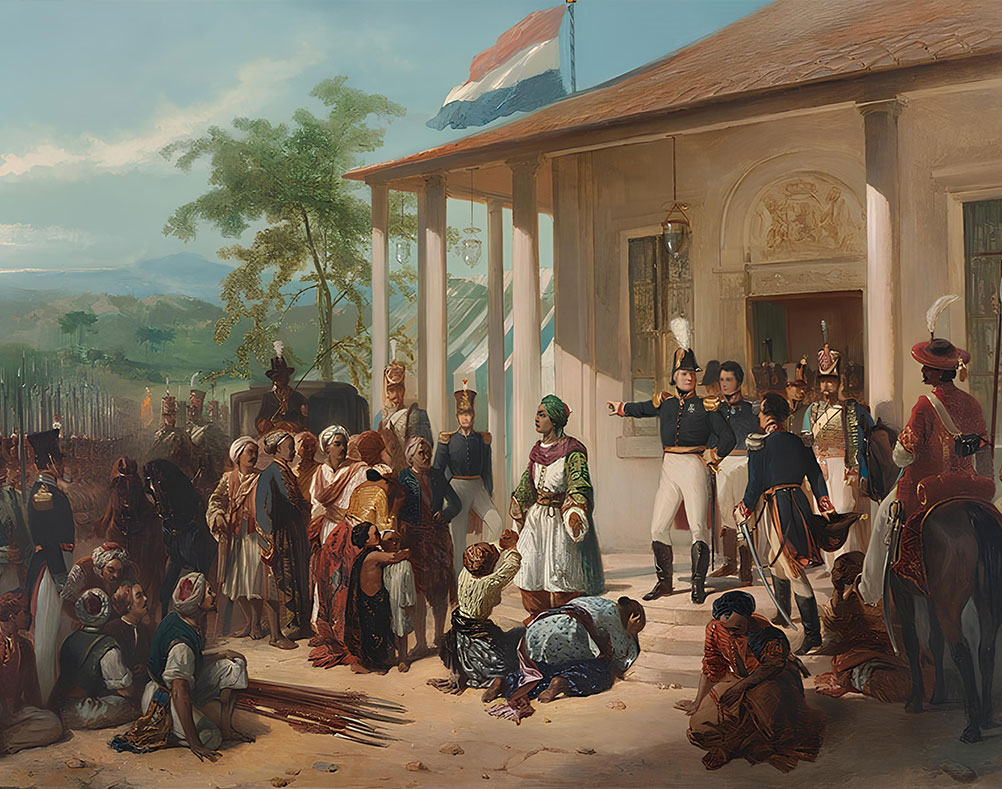
In the early 20th century, the Dutch colonial policy experienced a change in policy direction. The Dutch colonial government, which had initially exploited Indonesia, began to pay attention to concerns about the welfare of the Indonesian people. This policy was called "Ethical Politics". However, in reality, the Ethical Politics policy made more promises than implementation (Ricklefs, 2010: 327). The Ethical Politics had three slogans, namely irrigation, emigration, and education. Irrigation, namely building and improving irrigation for agriculture; emigration, namely encouraging people to transmigrate; and education, namely expanding the field of education and teaching (van Deventer, 1899 in Kartodirdjo, 2014: 38-39).
At the end of the 19th century, European schools had been established and the Ethical Politics had expanded these schools. These schools were established to meet the needs of employees in the Dutch East Indies government. However, only children of Europeans and a small number of Javanese aristocrats could enter these schools (van Niel, 1984: 41). In order to form the soul of civil servants in accordance with the needs of the government, when young priyayi entered the High School or Hogere Burger School (HBS), for example, they had to leave their family environment to live together with pure Europeans. This was so that morals and intellectuals would develop more healthily, than if they remained in their original family environment (Sutherland, 1979: 86).
This gave birth to a generation of progressive thinkers, who were proficient in writing and speaking Dutch, such as Prince Ario Tjondronegoro IV (Regent of Kudus in 1836 and Demak in 1850-1866). He hired a Dutch teacher named C.E. van Kesteren, to teach his children. Prince Ario Tjondronegoro IV's efforts were successful. His four children who were educated by C.E. van Kasteren, all became regents. The first was R.M.A.A. Sosroningrat (Regent of Jepara 1880-1905), the father of R.A. Kartini, who put her daughter in the local Europeesche Lagere School (ELS). Something that was not common for girls to attend school at that time. Second, R.M.A. Poerbodiningrat, Regent of Kudus and Brebes who wrote many articles and books in Javanese. Third, R.M.A.A. Poerbodiningrat (Regent of Demak in 1811-1915). Fourth, P.A. Adiningrat, who received a technology education in Delf in 1871. After his father died, he entered the civil service (Sutherland, 1979: 101).
Meanwhile, those who could not access European schools, chose to study with kiai or study in Islamic boarding schools. Teaching the Qur'an is the simplest form of education from this example. If this teaching pattern is more individual, then Islamic boarding schools are more institutional. As further education, in Islamic boarding schools, students study yellow books in various disciplines, such as theology (tawhid), fiqh (Islamic law), and tasawuf (Sufism). These two patterns, namely European education and Islamic boarding schools, seem to have also been followed by several priyayi, such as P.A.A. Achmad Djajadiningrat in Banten (Steenbrink, 1974: 10-14). In Semarang, through the famous Javanese kiai, one of whom was Kiai Saleh Darat, a network of knowledge was established between Java and the centers of Islamic teaching, namely Mecca and Medina (Mas'ud, 2006).










